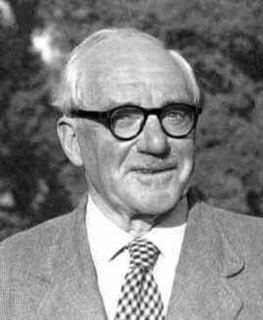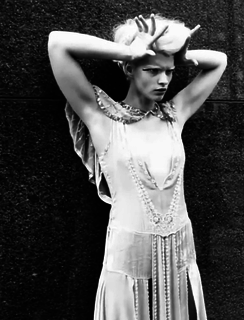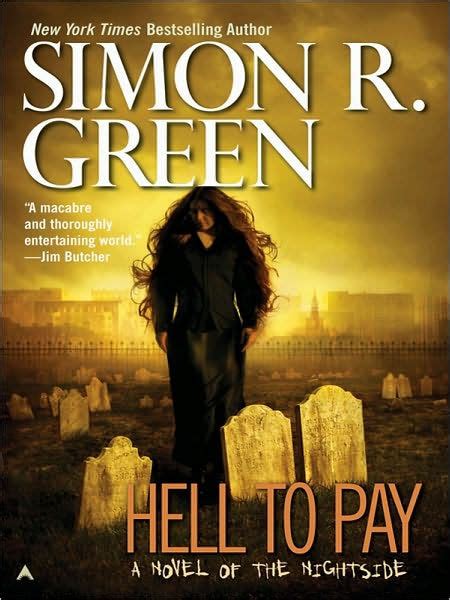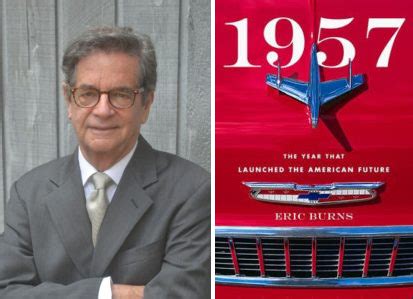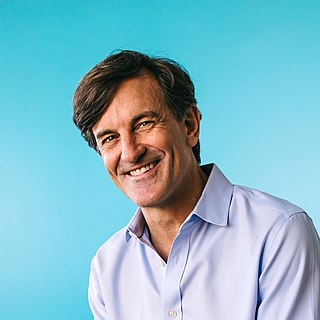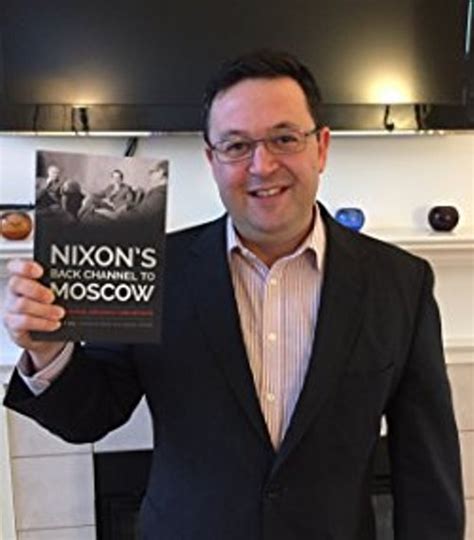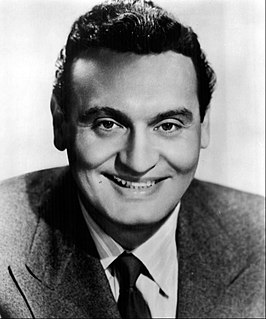Top 1115 Usual Quotes & Sayings - Page 18
Explore popular Usual quotes.
Last updated on December 4, 2024.
She sits in her usual ample armchair, with piles of books and unopened magazines around her. She sips cautiously from the mug of weak herb tea which is now her substitute for coffee. At one time she thought that she could not live without coffee, but it turned out that it is really the warm large mug she wants in her hands, that is the aid to thought or whatever it is she practices through the procession of hours, or of days.
We come finally, however, to the relation of the ideal theory to real world, or "real" probability. If he is consistent a man of the mathematical school washes his hands of applications. To someone who wants them he would say that the ideal system runs parallel to the usual theory: "If this is what you want, try it: it is not my business to justify application of the system; that can only be done by philosophizing; I am a mathematician". In practice he is apt to say: "try this; if it works that will justify it".
She didn't like to be talked about. Equally, she didn't like not to be talked about, when the high-minded chatter rushed on as though she was not there. There was no pleasing her, in fact. She had the grace, even at eleven, to know there was no pleasing her. She thought a lot, analytically, about other people's feelings, and had only just begun to realize that this was not usual, and not reciprocated.
The connection between health and productivity at work is intuitively obvious but has not been demonstrated to the satisfaction of either researchers or corporate financial officers. Ronald Kessler and Paul Stang help to bridge the usual gap between research and the marketplace with the help of a top-notch group of the best 'real-world' investigators obtainable-all in the cause of making the case that employee health should be treated as an investment in business performance-thus creating the new discipline of health and productivity management.
It is so hard for an evolutionary biologist to write about extinction caused by human stupidity. Let me then float an unconventional plea, the inverse of the usual argument. The extinction of Partula is unfair to Partula. That is the conventional argument, and I do not challenge its primacy. But we need a humanistic ecology as well, both for the practical reason that people will always touch people more than snails do or can, and for the moral reason that humans are legitimately the measure of all ethical questions for these are our issues, not nature's.
Battles, revolutions, pestilence, famine, and death, are never the effect of those natural causes, which we experience. Prodigies,omens, oracles, judgments, quite obscure the few natural events, that are intermingled with them. But as the former grow thinner every pagewe soon learn, that there is nothing mysterious or supernatural in the case, but that all proceeds from the usual propensity of mankind towards the marvellous, and that, though this inclination may at intervals receive a check from sense and learning, it can never be thoroughly extirpated.
I'd write of people and places like I knew, and I'd make my characters talk everyday English; and I'd let the sun rise and set in the usual quiet way without much fuss over the fact. If I had to have villains at all, I'd give them a chance, Anne--I'd give them a chance. There are some terrible bad men the world, I suppose, but you'd have to go a long piece to find them...But most of us have got a little decency somewhere in us. Keep on writing, Anne.
My big "double-aha" moment came while anchoring the national news at CBS News. It was at the height of the recession, and on top of the usual negative stories, my newscasts became full of especially heart wrenching stories of people losing their homes, jobs, and retirement savings. Starting the morning off like that could leave even the most optimistic person feeling helpless and hopeless. The lightning bolt came when we changed how we talked about the negative.
Once we know the plot and its surprises, we can appreciate a book's artistry without the usual confusion and sap flow of emotion, content to follow the action with tenderness and interest, all passion spent. Rather than surrender to the story or the characters - as a good first reader ought - we can now look at how the book works, and instead of swooning over it like a besotted lover begin to appreciate its intricacy and craftmanship. Surprisingly, such dissection doesn't murder the experience. Just the opposite: Only then does a work of art fully live.
We thought we knew 20 years ago. That led to some alarmist books – mine included – because it looked clear-cut, but it hasn’t happened. The climate is doing its usual tricks. There’s nothing much really happening yet. We were supposed to be halfway toward a frying world now. The world has not warmed up very much since the millennium. Twelve years is a reasonable time. The temperature has stayed almost constant, whereas it should have been rising - carbon dioxide is rising, no question about that.
I walked into my agency and I said, "You know what? I can't do this. You're telling me I need to go on a diet? My diet is already zucchini only. What do you want me to do?" And basically, they gave me two options: either stay the way I was and do commercial work, or do plus size modeling. I remember having the usual salad but I added walnuts and salmon and olive oil and I thought, "The world didn't blow up!"I felt fantastic. I wanted to keep that feeling so I made a decision that day that I didn't care. There was more money to be made being healthy.
Even her name seemed empty, as though it had detached itself from her and was floating untethered in his mind. How am I supposed to live without you? It was not a matter of the body; his body would carry on as usual. The problem was located in the word how: he would live, but without Elspeth the flavour, the manner, the method of living were lost to him. He would have to relearn solitude.
I feel a little more tired than usual, ... Ive had to recover from everything, my illnesses and things this summer. Its not perfect circumstances, but Im definitely going to be out there and hopefully have my letdown after the Open ... I think Ill go in mentally a lot better. When it comes down to it I dont think anyone really wants to play me because I have a lot of weapons and not a ton of weaknesses. My main weakness would probably be an occasional self-destruction mode. So Ill try not to touch that red button accidentally.
When I remember that dizzy summer, that dull, stupid, lovely, dire summer, it seems that in those days I ate my lunches, smelled another's skin, noticed a shade of yellow, even simply sat, with greater lust and hopefulness - and that I lusted with greater faith, hoped with greater abandon. The people I loved were celebrities, surrounded by rumor and fanfare; the places I sat with them, movie lots and monuments. No doubt all of this is not true remembrance but the ruinous work of nostalgia, which obliterates the past, and no doubt, as usual, I have exaggerated everything.
I loved you!” he yelled. He jumped up out of his chair so quickly I never saw it coming. “I loved you, and you destroyed me. You took my heart and ripped it up. You might as well have staked me!” The change in his features also caught me by surprise. His voice filled the room. So much grief, so much anger. So unlike the usual Adrian. He strode toward me, hand clasped over his chest. “I. Loved. You. And you used me the whole time.
The Islamists had control over territory that was about half the size of the Federal Republic of Germany. For years, we have been putting the lives of our troops on the line, we have taken huge losses and the Europeans cut the budget? If money is more important than the lives of our children, what else is this than the usual arrogance and superficiality? And where is all this terror coming from? It is a result of mistakes the West committed in Pakistan and Afghanistan in the 1980s, when they armed the Islamic rebels against the Soviet troops.
It's my special magical power. I can read your mind when you're thinking dirty thoughts." "So, ninety-five percent of the time." She craned her head back to look up at him. "Ninety-five percent? What's the other five percent?" "Oh, you know, the usual--demons I might kill, runes I need to learn, people who've annoyed me recently, people who've annoyed me not so recently, ducks." "Ducks?
My usual day is I get up around 11 o'clock and do yoga and then eat afterwards. Then I have sound check and play soccer and do running with the guys in the band after sound check, and then do the show and eat dinner after the show and usually get to bed around 3 o'clock by the time we get everybody on the bus and get rolling.
The trouble is that the whole 'accept Christ' attitude is likely to be wrong. It shows Christ applying to us rather than us to him. It makes him stand hat-in-hand awaiting our verdict on him, instead of our kneeling with troubled hearts awaiting his verdict on us. It may even permit us to accept Christ by an impulse of mind or emotions, painlessly, at no loss to our ego and no inconvenience to our usual way of life.
Every day things happen in the world that cannot be explained by any law of things we know. Every day they're mentioned and forgotten, and the same mystery that brought them takes them away, transforming their secret into oblivion. Such is the law by which things that can't be explained must be forgotten. The visible world goes on as usual in the broad daylight. Otherness watches us from the shadows.
That is another chamber of my heart that shows no electrical activity - the chamber that used to flicker into life when I saw a film that moved me, or read a book that inspired me, or listened to music that made me want to cry. I closed that chamber myself, for all the usual reasons. And now I seem to have made a pact with some philistine devil: if I don't attempt to re-open it, I will be allowed just enough energy and optimism to get through a working day without wanting to hang myself.
the usual attitude of Christians towards Jews is - I hardly know whether to say more impious or more stupid, when viewed in the light of their professed principles. ... They hardly know Christ was a Jew. And I find men, educated, supposing that Christ spoke Greek. To my feeling, this deadness to the history which has prepared half our world for us, this inability to find interest in any form of life that is not clad in the same coat-tails and flounces as our own, lies very close to the worst kind of irreligion.
The new paradigm may be called a holistic world view, seeing the world as an integrated whole rather than a dissociated collection of parts. It may also be called an ecological view, if the term "ecological" is used in a much broader and deeper sense than usual. Deep ecological awareness recognizes the fundamental interdependence of all phenomena and the fact that, as individuals and societies we are all embedded in (and ultimately dependent on) the cyclical process of nature.
It's tucked away in a quiet corner, shadowed and obscured, no part of the Nightside's usual bright gaudy neon noir. It doesn't advertise and it doesn't care if you habitually pass by on the other side. It's just there for when you need it. Dedicated to the patron saint of lost causes, St. Jude's is an old old place... St. Jude's isn't a place for comfort for frills and fancies and the trappings of religion. just a place where you can talk to your god and sometimes get an answer.
Want know how I got these scars? My father was a drinker and a fiend. And one night he goes off crazier than usual. Mommy gets the kitchen knife to defend herself. He doesn't like that. Not one bit. So, me watching, he takes the knife to her, laughing while he does it. He turns to me, and he says, 'why so serious?' He comes at me with the knife. 'Why so serious?!'. He sticks the blade in my mouth. 'Let's put a smile on that face!' And why so serious?
We also heard the usual old nonsense that banning hunting would affect employment if we abolished crime we would put all the police out of work. If we abolished ill-health we would put all the nurses and doctors out of work. Will anybody argue that we should preserve crime and ill-health in order to keep people in jobs?
I looked at Thalia. "You're afraid of heights." Now that we were safely down the mountain, her eyes had their usual angry look. "Don't be stupid." That explains why you freaked out on Apollo's bus. Why you didn't want to talk about it." She took a deep breath. Then she brushed the pine needles out of her hair. "If you tell anyone, I swear—" No, no," I said. "That's cool. It's just… the daughter of Zeus, the Lord of the Sky, afraid of heights?
Childhood is less clear to me than to many people: when it ended I turned my face away from it for no reason that I know about, certainly without the usual reason of unhappy memories. For many years that worried me, but then I discovered that the tales of former children are seldom to be trusted. Some people supply too many past victories or pleasures with which to comfort themselves, and other people cling to pains, real and imagined, to excuse what they have become.
Dani, Dani, Dani." I flinch. I've never heard anyone say my name so gently. It creeps me all kinds of out. He's towering over me, arms crossed over his chest, scarred forearms dark against the rolled-up sleeves of a crisp white shirt. Heavy silver cuffs glint at both wrists. The light is smack behind his head, as usual. "You didn't really think I'd let you get away with it," Ryodan says.
"Try another Subtraction sum. Take a bone from a dog: what remains?" [asked the Red Queen] Alice considered. "The bone wouldn't remain, of course, if I took it-and the dog wouldn't remain; it would come to bite me-and I'm sure I shouldn't remain!" "Then you think nothing would remain?" said the Red Queen. "I think that's the answer." "Wrong, as usual," said the Red Queen, "the dog's temper would remain."
We have reversed the usual classical notion that the independent "elementary parts" of the world are the fundamental reality, and that the various systems are merely particular contingent forms and arrangements of these parts. Rather, we say that inseparable quantum interconnectedness of the whole universe is the fundamental reality, and that relatively independent behaving parts are merely particular and contingent forms within this whole.
I just remember their kindness and goodness to me, and their peacefulness and their utter simplicity. They inspired real reverence, and I think, in a way, they were certainly saints. And they were saints in that most effective and telling way: sanctified by leading ordinary lives in a completely supernatural manner, sanctified by obscurity, by usual skills, by common tasks, by routine, but skills, tasks, routine which received a supernatural form from grace within.
In the dog two conditions were found to produce pathological disturbances by functional interference, namely, an unusually acute clashing of the excitatory and inhibitory processes, and the influence of strong and extraordinary stimuli. In man precisely similar conditions constitute the usual causes of nervous and psychic disturbances. Different conditions productive of extreme excitation, such as intense grief or bitter insults, often lead, when the natural reactions are inhibited by the necessary restraint, to profound and prolonged loss of balance in nervous and psychic activity.
If you've heard Hillary Clinton's recent remarks on Ritalin and other drug use on children, you'll find the usual nauseating demagoguery. She appears to be urging Ritalin caution; but, if you listen carefully, she's calling it a miracle drug: "A Godsend for emotional and behavioral problems, for both children and their parents." She insists her efforts are not an attack on the medical treatment of children's emotional well-being because the drugs are very, very "useful."
The serious reader in the age of technology is a rebel by definition: a protester without a placard, a Luddite without hammer or bludgeon. She reads on planes to picket the antiseptic nature of modern travel, on commuter trains to insist on individualism in the midst of the herd, in hotel rooms to boycott the circumstances that separate her from her usual sources of comfort and stimulation, during office breaks to escape from the banal conversation of office mates, and at home to revolt against the pervasive and mind-deadening irrelevance of television.
Sometimes I would get invited to a party or to go out to dinner by one of them and I would decline. Part of me wanted to go, but those kind of outings always made me feel even more alienated than usual. Hearing them talk made me feel lonely and hateful at the same time. Lonely because I didn't fit in, never did. When I was reminded, it hurt. And hateful because it reaffirmed what I already knew, that I was alone and on the outside.
[Regarding] the soul, I'm a little wary of any discourse on that topic that pretends to have an answer, so I tend to keep my musings to myself. There is interesting, legitimate metaphysical work on the topic going at least as far back as Leibniz and continuing today, following the theme that consciousness, or at least computation, might be at least as fundamental as phenomena such as space, time, energy, and matter, which are the usual subject matter of physics. I follow that sort of thing with interest but with very modest expectations that answers will be arrived at during my lifetime.
I am starting to get tired of relying on words. They are full of meaning, yes, but they lack sensation. Writing to her is not the same as seeing her face as she listens. hearing back from her is not the same as hearing her voice. I have always been grateful for technology, but now it feels as if there's a little hitch of separation woven into any digital interaction. I want to be there, and this scares me. All my usual disconnected comforts are bieng taken away, now that I see the greater comfort of presence.
Psychohistory, like psychoanalysis, is a science in which the researcher's feelings are as much or even more a part of his research equipment than his eyes or his hands. Weighing of complex motives can only be accomplished by identification with human actors, the usual suppression of all feeling preached and followed by most "science" simply cripples a psychohistorian as badly as it would cripple a biologist to be forbidden the use of a microscope. The emotional development of a psychohistorian is therefore as much a topic for discussion as his or her intellectual development.
The kiss began much the same as usual--Edward was as careful as ever, and my heart began to overreact like it always did. And then something seemed to change. Suddenly his lips became much more urgent, his free hand twisted into my hair and held my face securely to his. And though I was clearly beginning to cross his cautious lines, for once he didn't stop me. His body was cold through the thin quilt, but I crushed myself against him eagerly.
Fair Trade is a market-based, entrepreneurial response to business as usual: it helps third-word farmers developing direct market access as well as the organizational and management capacity to add value to their products and take them directly to the global market. Direct trade, a fair price, access to capital and local capacity-building, which are the core strategies of this model, have been successfully building farmers' incomes and self-reliance for more than 50 years.
In any case, the bayonet isn't as important as it used to be. It's more usual now to go into the attack with hand-grenades and your entrenching tool. The sharpened spade is a lighter and more versatile weapon - not only can you get a man under the chin, but more to the point, you can strike a blow with a lot more force behind it. That's especially true if you can bring it down diagonally between the neck and the shoulder, because then you can split down as far as the chest. When you put a bayonet in, it can stick, and you have to give the other man a hefty kick in the guts to get it out.
I also remember when I watched Henry: Portrait of a Serial Killer [1990] at, like, age 15. That scared the crap out of me. Because it didn't operate inside the usual conventions of the horror genre in the way that I could accept. I can accept horny teenager counselors being murdered at camp. But I couldn't accept the derangement of Henry: Portrait of a Serial Killer, which was that anyone could be murdered at any moment - whole families, with no build-up music and no meaning. It terrified me.
The Bobbit case, which brought to life the ancient mythic archetype of woman as castrator, demonstrated that women are as aggressive as men and that sex is a dark, dangerous force of nature. But of course the feminist establishment, stuck in its battered-woman blinders, learned nothing as usual from this lurid refutation of its normal views. Classic art works like Bizet's Carmen tell us more about the irrationality of love, jealousy and revenge than do all the pat formulas of the counseling industry.
In quantum mechanics there is A causing B. The equations do not stand outside that usual paradigm of physics. The real issue is that the kinds of things you predict in quantum mechanics are different from the kinds of things you predict using general relativity. Quantum mechanics, that big, new, spectacular remarkable idea is that you only predict probabilities, the likelihood of one outcome or another. That's the new idea.
But there would be no confrontation the next day. And for Tommy Williams, there would be no school, either. Because the moment he walked through the gap in the stones to leave the circle, something quiet unexpected happened. Tommy, holding tightly on to his rock, took the step that divided the inside of the circle from the outside - and disappeared. The woods suddenly felt colder than usual. The darkness hung more heavily. The amber was gone - and now nothing would ever be the same.
e idea of a personal God is quite alien to me and seems even naive. However, I am also not a "Freethinker" in the usual sense of the word because I find that this is in the main an attitude nourished exclusively by an opposition against naive superstition. My feeling is insofar religious as I am imbued with the consciousness of the insuffiency of the human mind to understand deeply the harmony of the Universe which we try to formulate as "laws of nature." It is this consciousness and humility I miss in the Freethinker mentality. Sincerely yours, Albert Einstein.
In offering to you, my countrymen, these counsels of an old and affectionate friend, I dare not hope they will make the strong and lasting impression I could wish; that they will control the usual current of the passions, or prevent our nation from running the course which has hitherto marked the destiny of nations. ... moderate the fury of party spirit, to warn against the mischiefs of foreign intrigue, to guard against the impostures of pretended patriotism; this hope will be a full recompense for the solicitude for your welfare, by which they have been dictated.
The usual struggle squeezing my bloated Citroën, absurdly named “Picasso,” in or out of any old Italian town. I should be taking a year over this and doing it on a donkey. Eventually found the road to the church of the Madonna of San Biagio, a foursquare temple sitting all alone in the plain. Sangallo's fantasy of the Doric order in honey-colored sandstone, with shell-niches, rosettes, oculi under heavy entablatures. Any one ignorant of geometry scarcely dare enter this shrine to number, measure, and weight. So clean and crisp I could eat it for breakfast.
It is for no particular item in the tax-bill that I refuse to pay it. I simply wish to refuse allegiance to the State, to withdrawand stand aloof from it effectually. I do not care to trace the course of my dollar, if I could, till it buys a man or a musket to shoot one with,--the dollar is innocent,--but I am concerned to trace the effects of my allegiance. In fact, I quietly declare war with the State, after my fashion, though I will still make what use and get what advantage of her I can, as is usual in such cases.
If your primary focus is to get over your health problems or get past a relationship crisis so that you can return to your former life and old patterns- that is, get back to business as usual-you are not really living. The distinction is paradoxical and sometimes subtle. It's the difference between walking through your life on your way to somewhere, and walking as your life. Even if you believe that where you want to get is extremely important, that destination is secondary. Your immediate experience is what really matters. It is your life.
The rewrites are a struggle right now. Sometimes I wish writing a book could just be easy for me at last. But when I think about it practically, I am glad it's a struggle. I am (as usual) attempting to write a book that's too hard for me. I'm telling a story I'm not smart enough to tell. The risk of failure is huge. But I prefer it this way. I'm forced to learn, forced to smarten myself up, forced to wrestle. And if it works, then I'll have written something that is better than I am.
The usual marriage in traditional cultures was arranged for by the families. It wasn't a person-to-person decision at all. . . . In the Middle Ages, that was the kind of marriage that was sanctified by the Church. And so the troubadour idea of real person-to-person Amor was very dangerous. . . . It is in direct contradiction to the way of the Church. The word AMOR spelt backwards is ROMA, the Roman Catholic Church, which was justifying marriages that were simply political and social in their character. And so came this movement validating individual choice, what I call following your bliss.
In the usual way I submitted manuscripts to publishers. This was not so much a feeling that I should be published as a wish to escape the feared and hated drudgery of "normal" work. In my twenties some of my work for children was published by Macmillan. However, I was twenty-seven before my adult novel, The Birthgrave, was taken by DAW Books in the USA. This enabled me finally to stop doing stupid and soul-killing jobs, and start working day and night as a professional writer. It felt like a rescue from damnation, and still does.
Bedding her could be anything from tenderness to riot, but to take her when she was a bit the worse for drink was always a particular delight. Intoxicated, she took less care for him than usual; abandoned and oblivious to all but her own pleasure, she would rake him, bite him - and beg him to serve her so, as well. He loved the feeling of power in it, the tantalizing choice between joining her at once in animal lust, or of holding himself-for a time- in check, so as to drive her at his whim.
As usual, it occurred to me that words were the only thing that could possibly save me from this situation. This was a characteristic misunderstanding on my part. When action was needed, I was absorbed in words; for words proceeded with such difficulty from my mouth that I was intent on them and forgot all about action. It seemed to me that actions, which are dazzling, varied things, must always be accompanied by equally dazzling and equally varied words.
I did all the usual things. I think I did everything that everybody else does. I did auditions. I went to see people. I went to see the right people in some instances, the wrong people in others. The wrong time in others. The right time in others. Nothing seemed to make any difference. I quit 5 times! I always went back to try again when circumstances came around to it.
One the one hand, our economists treat human beings as rational actors making choices to maximize their own economic benefit. On the other hand, the same companies that hire those economists also pay for advertising campaigns that use the raw materials of myth and magic to encourage people to act against their own best interests, whether it's a matter of buying overpriced fizzy sugar water or the much more serious matter of continuing to support the unthinking pursuit of business as usual in the teeth of approaching disaster.
When you set about your composing, it may be necessary for your ease, and better distillation of wit, to put on your worst clothes, and the worse the better; for an author, like a limbeck, will yield the better for having a rag about him: besides that, I have observed a gardener cut the outward rind of a tree (which is the surtout of it) to make it bear well; and this is a natural account of the usual poverty of poets, and is an argument why wits, of all men living, ought to be ill clad.
It was a splendid population - for all the slow, sleepy, sluggish-brained sloths stayed at home - you never find that sort of people among pioneers - you cannot build pioneers out of that sort of material. It was that population that gave to California a name for getting up astounding enterprises and rushing them through with a magnificent dash and daring and a recklessness of cost or consequences, which she bears unto this day - and when she projects a new surprise the grave world smiles as usual and says, "Well, that is California all over.

